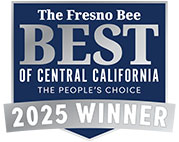Resumes: no one likes writing them, but everyone needs one. So why are they so important? Well, a resume gives potential employers a quick glance at your past work experience, education achievements, and skillset which may signal your qualifications. It also showcases your writing abilities, which may or may not be an essential skill for the job you’re applying for.
What should your resume include?
At the very least, your resume should include 4 sections: your work experience, your education, your skills, and any extracurriculars and leadership you were involved in that are relevant to the job.
Work Experience
Your work experience is critical in helping potential employers decided if you’re truly qualified for the job. When listing your work experience, make sure you include the following:
- Name of company
- City and State of company (be sure to include the country if the job was outside of your home country)
- Title of your Position
- Dates of employment (month and year is perfectly fine, exact dates aren’t needed)
- Bullet points explaining the duties of your position, along with any achievements made while in the position. This is important, as it lets potential employers know what you actually accomplished while you were there.
Education
For education, you should include a section that summarizes your highest level of education. There is no need to list your high school GPA if you’ve received a college degree. The exception to the rule is if you have multiple degrees. List your master’s degree before your bachelor’s, etc. When listing your education, make sure to include the following:
- Name of educational institution
- City and State of school (again, list the country if the school is located outside of your home country)
- Degree you earned, followed by the field you earned it in
- Date you earned your degree
- GPA (this is optional and isn’t recommended if you have a GPA lower than a 3.0)
Skills
The skills section of your resume is your chance to highlight anything that you can do that makes you more qualified for the job. Make sure that the skills you are listing are relevant to the job; if you’re applying for a job in Human Resources, it doesn’t matter that you are certified to operate a fork lift. When listing your skills, use the following format:
- Category of skill: Specific skill name
For example:
- Programs: Adobe Lightroom, Adobe Photoshop, Microsoft Word, Microsoft Excel, etc.
Extracurriculars and Leadership
This is your chance to showcase any additional experience that isn’t technically “work,” but is relevant to the position. This section can include formal extracurriculars and leadership positions held while you were in school or within your community. When listing these, be sure to include the following:
- Name of club and name of leadership position
- Years you were in the club/held the position
For example:
- Coalinga College ASB President – 2021-2022
How should you format your resume?
Unless you’re applying for a position that involves design, I’d recommend that you keep it pretty basic. Ariel, Calibri, or Times New Roman font on white paper is the suggested standard as it keeps your resume easy to read. There are plenty of templates that you can find, either online or in your word processing software, i.e., Microsoft word, Google Docs, etc, that will work for most jobs.
Keep it short and concise. There is no need to overwhelm your potential employer with every skill you’ve learned since you were 8 years old. The rule of thumb for resume length is one – two pages of relevant information, depending on the job you’re applying for. Remember, this is a summary of what you bring to the table - not your whole life story.
Also, when submitting your resume electronically, be sure to submit it as a PDF. This will ensure that your formatting will stay the same no matter what operating system or software the recipient opens it with.
Something to remember when putting your resume together: this is a document to market yourself to your potential future employer. It is intended to persuade them to bring you in for an interview where you can further showcase your skills, abilities, and tell them exactly why you’re the best candidate for the position. Keep it concise, but don't sell yourself short.
